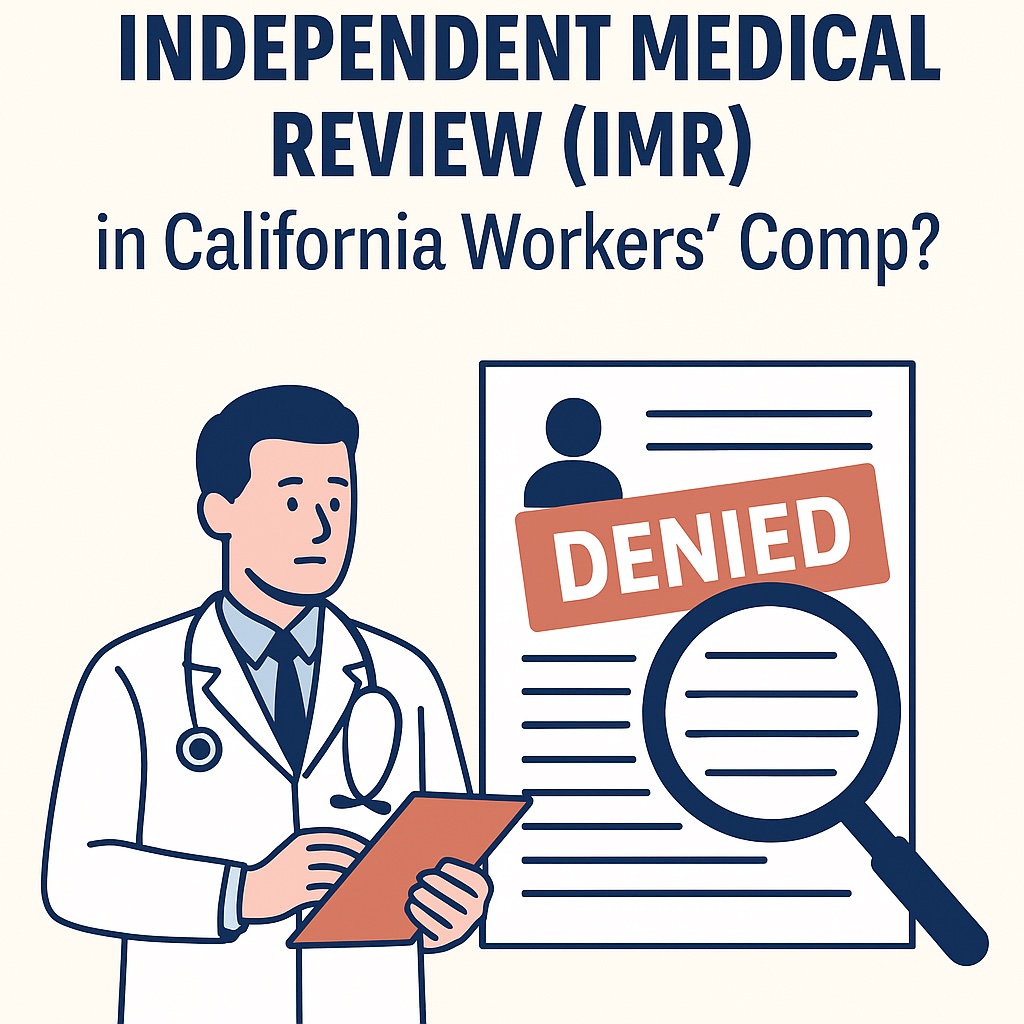
When your workers’ compensation doctor recommends treatment, you assume the insurance company will approve it. Unfortunately, that’s not always the case.
In California, if the insurer denies, delays, or modifies your recommended care, you have the right to challenge that decision through a process called Independent Medical Review (IMR).
🔹 What Is an IMR?
An Independent Medical Review is a legal process under California law that lets injured workers dispute denied medical treatment in their workers’ compensation case.
Rather than a judge, the decision is made by a neutral, third-party physician selected by Maximus, the company contracted by the California Department of Industrial Relations (DIR) to conduct IMRs.
It’s designed to keep the process fast and objective — but it can still be difficult to win without the right evidence and strategy.
🔍 When Can You Request an IMR?
You may request an IMR only after a Utilization Review (UR) denies or modifies your treatment recommendation. This could include:
- Surgery
- Physical therapy
- MRIs or CT scans
- Pain management
- Medications
- Psychological care
You’ll receive a written UR denial, and you’ll usually have 30 days to submit your IMR request.
⚖️ How the IMR Process Works
- UR Denial Issued
Your treating physician requests treatment, but the insurer’s Utilization Review denies or modifies it. - IMR Application Sent
You receive an IMR application with your UR denial. Complete and submit it within the deadline. - Medical Records Reviewed
A Maximus-assigned physician — not your treating doctor — reviews your file. - Decision Issued
Maximus issues a decision within 30 days (or less for urgent cases). The decision is final and binding for most issues.
🚨 What Are the Chances of Winning an IMR?
Statistically, only about 10–15% of IMRs result in overturned denials. That’s why it’s critical to:
- Have strong medical evidence from your treating physician
- Provide supporting documentation showing the treatment is medically necessary
- Avoid generic or incomplete medical requests
At EFLL, we help build winning IMR submissions — and we push back when insurers play games with care access.
🛡️ Can You Appeal an IMR Decision?
Only in rare cases. You can appeal if:
- There was fraud, conflict of interest, or bias
- The decision was based on incorrect facts or documents
- The IMR didn’t follow proper procedures
Otherwise, IMR decisions are considered final and can’t be appealed just because you disagree.
🔹 Why Choose Employees First Labor Law?
At EFLL, we’ve helped thousands of injured workers get life-changing treatment approved through IMR and other legal channels. We know how to:
✅ Build strong medical records
✅ Challenge improper UR denials
✅ Escalate care delays through IMR, hearings, and litigation
✅ Protect your right to continued treatment and permanent disability benefits
We don’t just push paper. We fight to make sure your treatment matches the seriousness of your injury — and that the system doesn’t leave you behind.
📞 Contact Employees First Labor Law today for a free consultation. Your health and recovery matter — and we’ll fight to make sure the law recognizes that.
📩 Click here to schedule your free case evaluation
📞 Call now — we’re ready to fight for you.



